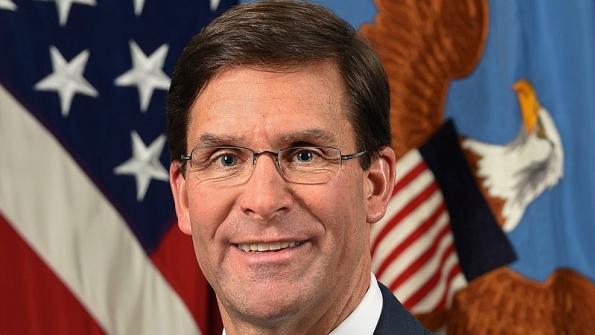
The Pentagon intends to request additional stimulus funding from Congress to support the defense industrial base in the wake of the COVID-19 pandemic, Defense Secretary Mark Esper says.
The funding would go to small suppliers that have been hit hard by the spread of the novel coronavirus, Esper said May 4 during a Brookings Institution event.
In recent weeks, Congress has passed about $3 trillion in emergency funding bills related to COVID-19. The Senate is in session this week, but the House has postponed votes. It is unknown when the next stimulus package will wrap up.
“We anticipate the likely need for additional monies … because we see again greater demand with regard to medical supplies and equipment,” Esper said.
But House Armed Services Committee Chairman Adam Smith (D-Wash.) said the Pentagon should not receive stimulus funding from the Coronavirus Aid, Relief and Economic Security Act because the public health sector needs it more.
Last week, Pentagon acquisition executive Ellen Lord said the Pentagon may have wiggle room to use some of its own operations and maintenance funding to pay for COVID-19-related efforts.
Lord cautioned that the Pentagon may not have the fiscal flexibility to pay for new demands on the agency to battle COVID-19.
“I will say that we continue to look at gaps in funding we have for specific issues. We continue to work with [the Office of Management and Budget] on that, and we will continue to talk to Congress about what we assess as our needs to really carry out our missions,” Lord said.
The Defense Department (DOD) wants to continue supporting the defense industry by issuing progress payments to help with cash flow, Esper said.
“DOD is not an island. We really rely heavily on the private sector, and so many of our private sector workforce has been affected by COVID-19,” Esper said.
Some defense contractor personnel are infected with the virus, while others are working in states with shutdown orders and management does not want them coming into work because of tight quarters, he said.
Separately, Esper is concerned the nation’s additional debt incurred due to COVID-19 may result in smaller defense budgets during a critical time when China and Russia are strategic competitors of the U.S.
The U.S. must recapitalize the nuclear triad and invest in hypersonic weapons, artificial intelligence, space capabilities and directed energy, Esper said.





